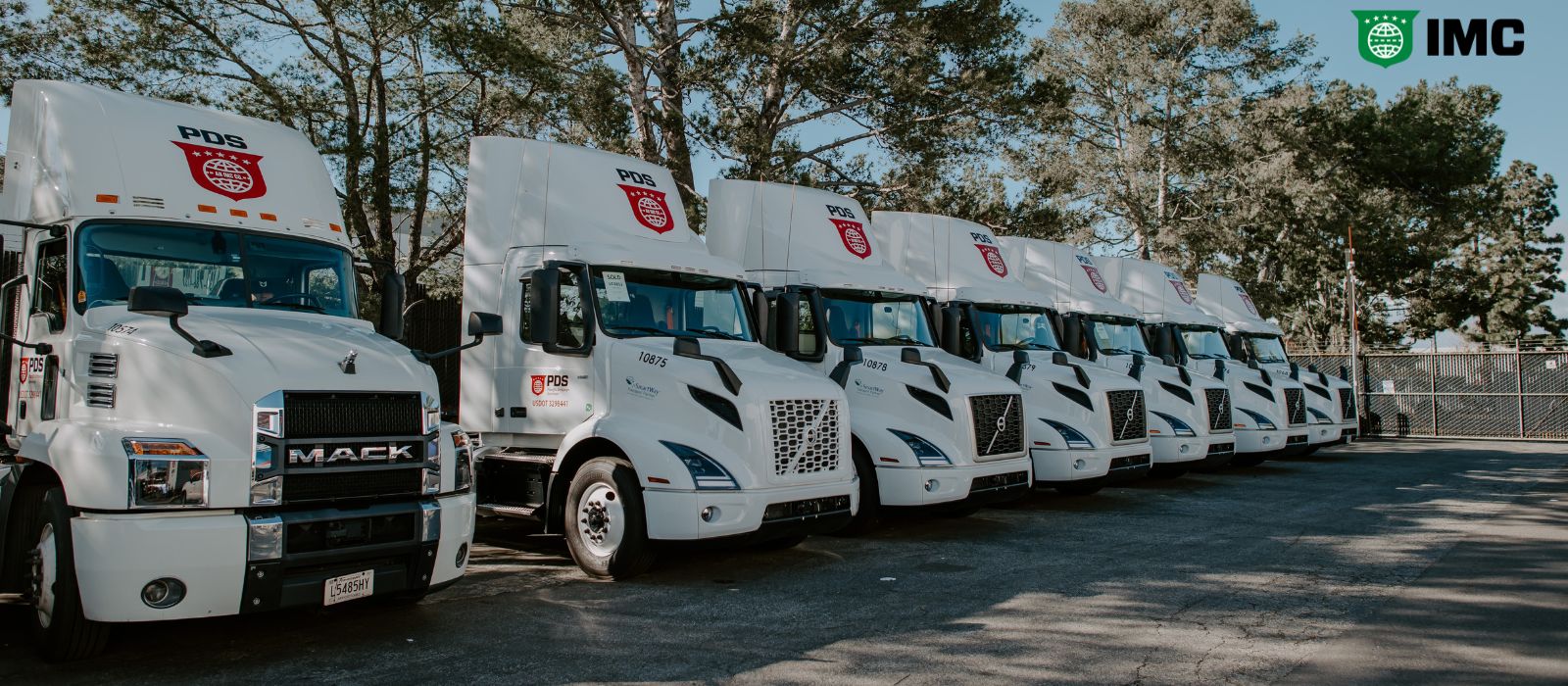Customer Newsletter
Complying with California’s Indirect Source Rule

Warehouse operators within the South Coast Air Basin are subject to new information gathering, recordkeeping and reporting requirements on the trucks servicing their locations. However, many operators still need to comply with the South Coast Air Quality Management District’s Warehouse Indirect Source Rule.
“They’re putting the onus on the warehouse operators in Southern California to monitor and record every truck coming in and out,” said Jim Gillis, president of Pacific Drayage Services, an IMC Company. “Anyone with a small beneficial cargo owner should be working today to gather that data and mitigate the penalty phase.”
As part of the rule, which applies to portions of Los Angeles, Riverside and San Bernardino counties and all of Orange County, warehouse operators incur points obligations on a weighted basis based on their size. They must earn a specified number of points through emissions-reducing activities or pay mitigation fees.
“Every time a non-zero truck enters their facility, the penalty increases. If it is a clean truck, they get a credit. Warehouse operators can also get credits for other things they do, such as using solar power, electric forklifts and yard hostlers, and EV chargers,” Gillis said.
The initial compliance period started on Jan. 1, 2022, for warehouses 250,000 square feet or more and Jan. 1, 2023, for warehouses 150,000 feet or larger. Warehouses 100,000 square feet or more will have to comply beginning Jan. 1, 2024.
However, several warehouse operators have yet to comply. “I’m encouraging everyone to read through ISR. The rule is 68 pages long, and the obligations on the warehouse operator are enormous,” Gillis said. “They need to know who they’re doing business with and should initiate conversations about clean energy with fleets.”
The rule requires self-reporting. “If you don’t report and get caught, the fines are massive,” Gillis said.
IMC can help operators secure point-earning opportunities, such as using electric yard hostlers and tractors. “We have purchased some electric trucks and are now in the testing phase,” Gillis said. “We’re also looking at hydrogen, which is a little more viable for long-distance moves. We are also ramping up our transload capabilities in Southern California, which will help customers meet their ESG goals.”
IMC is closely monitoring ISR, as it applies today and possible expansions. “Even more worrisome is that the South Coast Air Quality Management District is now talking about expanding the indirect source rule program to ports and railroads,” Gillis said. To learn more about how IMC can help ensure compliance with ISR and secure point-earning opportunities, contact us at (833) 334-4622.
